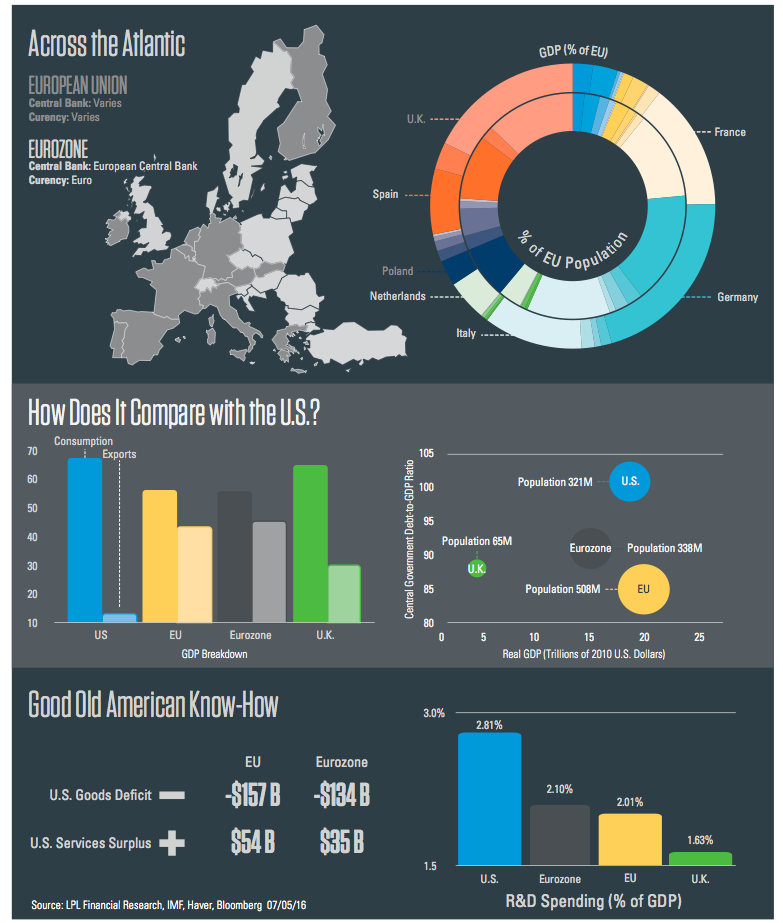If and when the U.K. government triggers Article 50, it would begin the process of negotiating the U.K.’s exit from the EU. Markets are realizing that trade between the U.K. and the EU is not going to cease as a result of this vote. What will be negotiated is not whether there will be trade, but on what terms this trade will take place. Some have referred to the concept of a “Brexit Lite,” whereby the U.K. would be able to gain access to European markets, but without having to accept the regulatory system that many in the U.K. believe is too restrictive, a message that was clearly sent by the leave voters on June 23.
By leaving the EU, the U.K. would lose its vote in the European Parliament, which makes the rules governing the “four freedoms” noted earlier. Currently, Norway, Iceland, Lichtenstein, and all 28 members of the EU (see the infographic) are members of the European Free Trade Association. All 31 countries have access to the single market of the EU, and are bound by the four freedoms. The freedom of movement of people is likely to be the major sticking point for the U.K. and the EU as they negotiate, using the other three freedoms (goods, services, and capital) as bargaining chips.
Key Political Events In The U.K. And Europe Through 2017
The leadership vote for the head of the Conservative party that begins this week in the U.K. is likely only the beginning of a series of political events in the U.K. and across Europe that markets will be keeping close tabs on over the rest of this year and into 2017:
• Another election in the U.K. In essence, this will be to ratify the referendum results and may occur as soon as later this year, although one isn’t required until 2020 (five years after the general election in 2015).
• The political situation in Scotland. The electorate voted by a wide margin to remain in the U.K. in the September 18, 2014 referendum; Scotland’s political leadership wants to hold another referendum to leave the U.K. and rejoin the EU.
• Referendum in Italy. The Italian government will hold a referendum on constitutional reforms in Italy in October 2016. The results may lead to the resignation of the Italian government and further bolster anti-EU sentiment in that country.
• Political uncertainty in Spain. Spain’s economy is the fourth largest in an EU without the U.K., and has held two elections in the past seven months (including one just three days after the referendum in the U.K.). Although centrist, pro Europe parties picked up seats in the June election, the ruling center-right party did not win a majority in Spain’s 350 seat parliament, leaving political uncertainty high.
• Elections in Germany, France, and the Netherlands in 2017. In an EU without the U.K., these countries rank first, second, and fifth, respectively, in the size of their economies. Each will hold a parliamentary election in 2017, and although Germany remains fully committed to the EU, there are sizable political entities in both France and the Netherlands that are generally opposed granting the EU more power at the expense of national governments. The rise of these anti-EU political movements in recent years makes the EU’s negotiation with the U.K. over its exit crucial; the EU leadership wants to make sure that the terms are onerous enough politically and economically to send a message to any of the remaining 27 nations who may be thinking about leaving the EU.

The European Landscape








